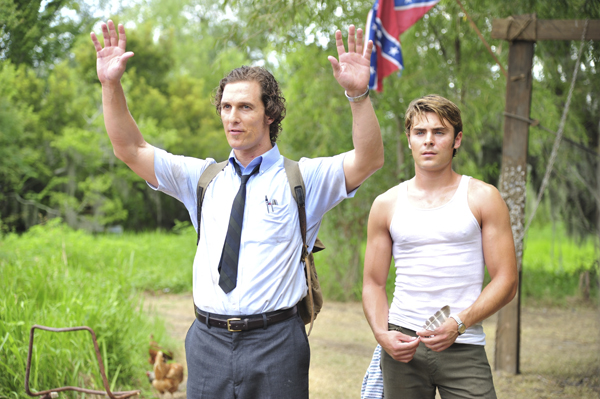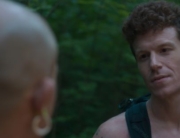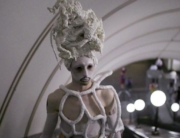
From left, Matthew McConaughey and Zac Efron (The Film Society of Lincoln Center)
In years to come, when they speak of flops, they’ll say, “At least it wasn’t as bad as The Paperboy.” That might just be okay with the opinionated and polarizing producer-turned-director Lee Daniels, who gave us Precious: Based on the Novel ‘Push’ by Sapphire in 2009, and who takes the unconventional path nearly every chance he gets. In the case of his new film, Daniels proves he can make even a bad movie remarkable.
Based on a book by the novelist and screenwriter Peter Dexter, The Paperboy is set in the late 1960s. The story is told from the wide-eyed perspective of Jack Jansen, whose older brother Ward, a newspaper reporter, returns to his rural Florida family home to investigate the murder conviction of a local man. From early on, it’s apparent that neither Dexter as co-writer nor Daniels as director have much interest in the details of the crime, despite its prominence in the story. Rather, we are treated with detail after detail of the lurid interrelationships that occur in the backwoods small town.
Ward, played by a currently blossoming Matthew McConaughey, brings along a priggish, cavalier, and ambiguously gay researcher, Yardley (David Oyelowo). The possibility of Yardley’s sexual orientation, combined with his being a black professional in the 1960’s Deep South, makes him a perpetual outsider. Zac Efron, as the pretty, oversexed teenager Jack, exudes boyhood ignorance. He looks up to his brother, resents Yardley, and falls in love with nearly every woman he meets, including his family’s sassy housekeeper (Macy Gray). When the decidedly male trio finally encounters Hillary Van Wetter—the inmate in question (John Cusack, deep in character)—and Charlotte (an equally unrecognizable Nicole Kidman), mayhem, of course, ensues. Charlotte’s Van Wetter’s girlfriend-by-correspondence, who writes slutty love letters to death row inmates, half as a public service and half because it presumably turns her on.
So much screen time is devoted to the interplay between this odd array of characters that I’m not quite sure I even understand the details of the case against Mr. Van Wetter. It matters little. The film moves from one sultry scene to the next, whether or not we in the audience can keep up. Throughout the investigation, Charlotte is far from the only one to get her rocks off (and she does so a number of times). There are such unique sequences comprised of such shockingly prurient subject matter that I could see social workers finding a use for this film as a desensitizing training tool. By now you may have heard of the urination scene, but look out for the S & M scene, the machete to the jugular, and the telepathic double orgasm. Lee Daniels makes Tennessee Williams look like Emily Dickinson. Let us all please hope that conservative militant groups in countries unfriendly to the U.S. don’t show The Paperboy as an example of American moral corrosion.
Kidman is her usual brilliant self, and her character is actually plausible and relatively easy to follow. Efron shows talent and holds up his end in each scene, yet his character remains an enigma, even until the final credits. The events of the film happen in his gauzy blur of recollection, as if the story was told through Jack’s memory rather than as he experiences it. All the while, Macy Gray’s characteristically squeaky voice narrates.
I don’t know if anyone has ever stood in line at the movies and said, “Honey, let’s see something naughty and dangerous and perfectly, profoundly, ridiculous. Something with golden showers in it.” But you know what? They may just start to.






Leave A Comment